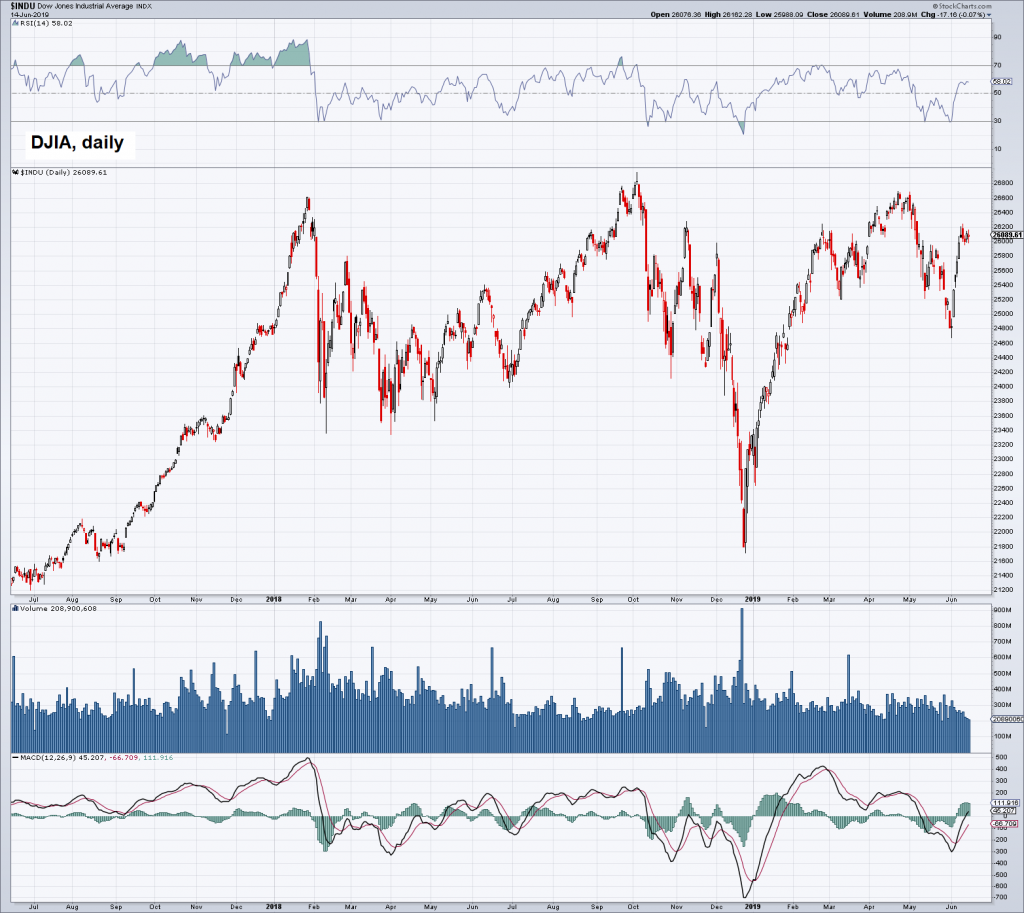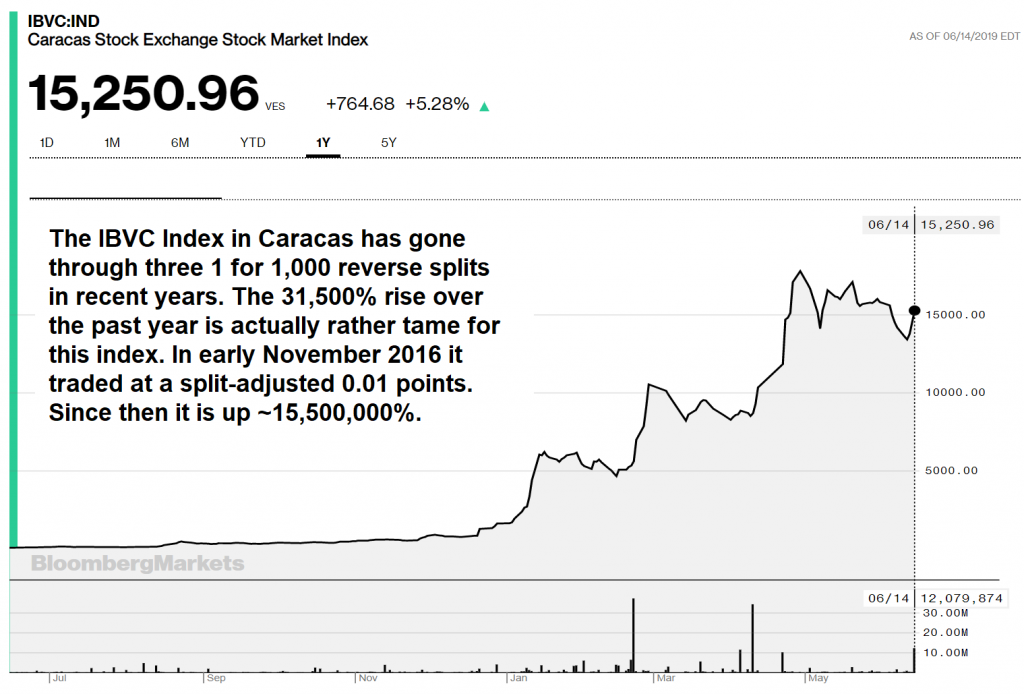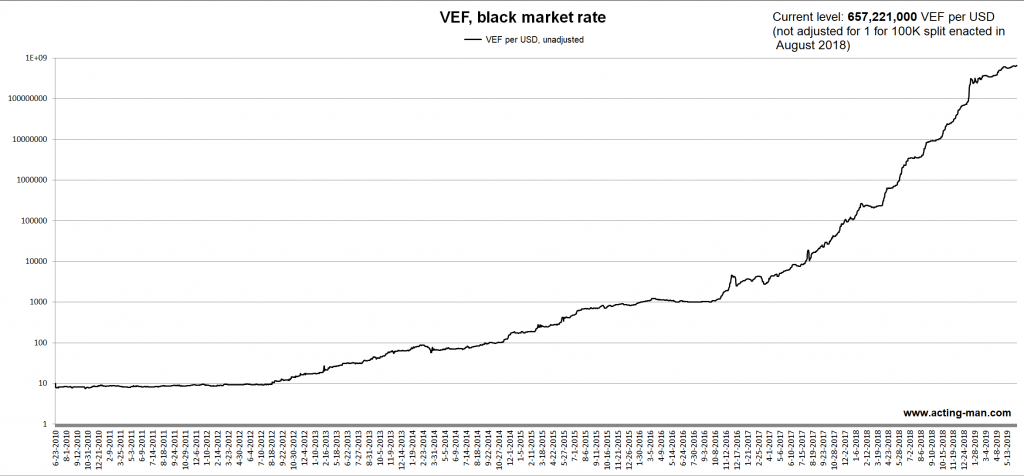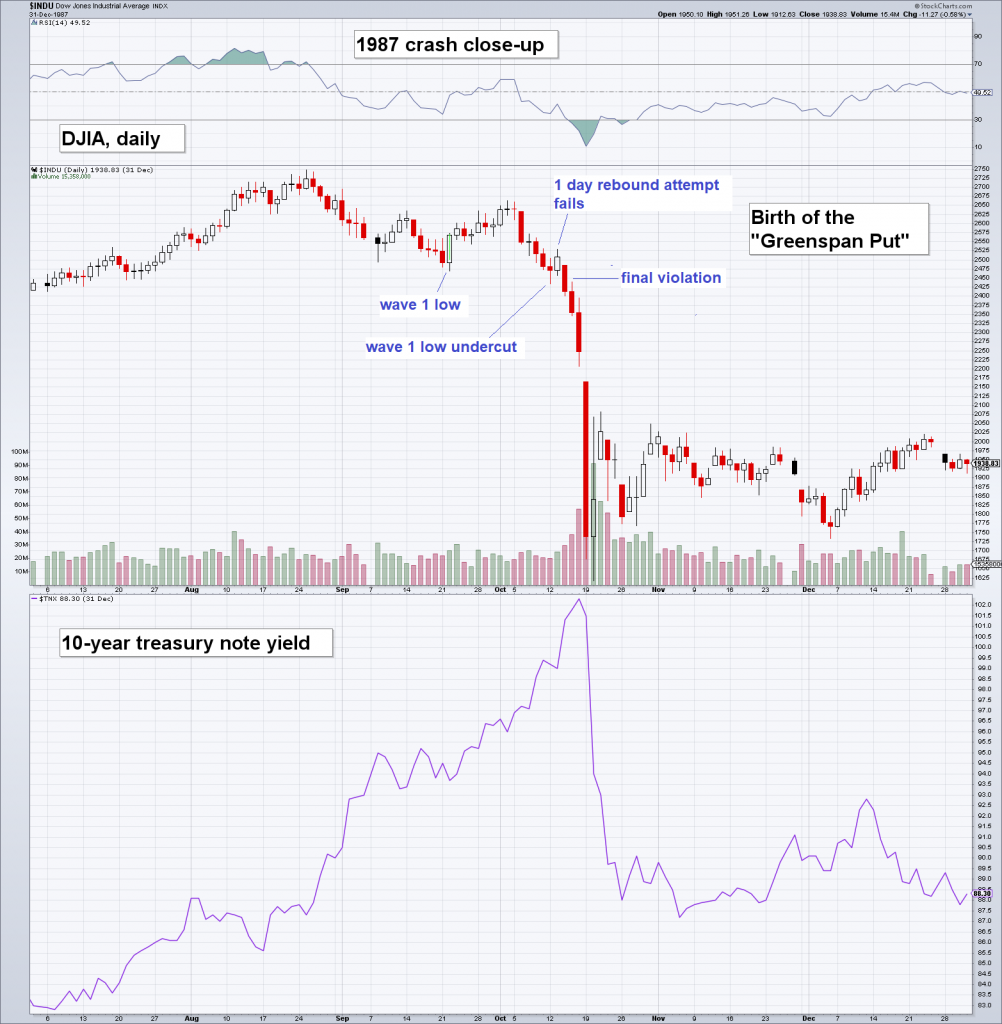A Loose Relationship
The Dow Jones Industrial Average made another concerted run at the elusive 27,000 milestone over the last several weeks. But, as of this writing, the index has stalled out short of this psychosomatic barrier. By our estimation, this is for the best.

Since early 2018 the DJIA has gone nowhere, albeit in interesting ways… [PT]
While not always apparent, the stock market generally maintains a loose connection to the underlying economy. Over long multi-decade periods, as measured by the price-to-earnings (P/E) ratio, it will undulate between stages when it is cheap and stages when it is dear. Eventually, however, the stock market reverts towards its mean P/E ratio – always overshooting and undershooting as it cycles about.
One of the unintended consequences of fiscal and monetary intervention is that it distorts this relationship. Stimulus intended to juice the economy has the effect of juicing financial markets. Sometimes these inflationary policies have the effect of completely disconnecting the stock market from the economy.
For example, Venezuela’s Caracas Stock Exchange, Stock Market Index, has soared almost 36,000 percent in the past year alone. Yet no one, save President Nicolás Maduro, would point to the booming Caracas Stock Exchange as an indication of a healthy and sound economy. In truth, the Caracas Stock Exchange is a barometer of the country’s insane economic policies.

Venezuela’s hyperinflation-driven stock market. Note: adjusted for the three 1 for 1,000 reverse splits of the index since early 2014, its 21st century low (established in 2002) was 0.000008 points. [PT]

While we are at it, here is the most recent update of the VEF (bolivar) to USD black (read: free) market exchange rate – this chart shows the unadjusted rate, but in August 2018 five zeros were actually shaved off (a 1 for 100,000 “reverse split” of the currency). The exchange rate is therefore actually 6,572 new bolivares per USD. If one adjusts the 2010 low of about 8 VEF per USD accordingly, it was 0.00008 VEF per USD. This is why the stock market has soared in VEF terms despite a free-fall in Venezuela’s economic output. [PT]
Hence, after a decade long bull market in U.S. stocks, one that has pushed the P/E ratio to nosebleed levels, we find comfort and relief in a sideways or falling stock market. Perhaps the U.S. stock market is not entirely rigged after all. Perhaps it is only partially rigged.
Still, we have some reservations…
Devising a System of Chaos
When Alan Greenspan first executed the “Greenspan put” following the 1987 Black Monday crash, financial markets were well positioned for this centrally coordinated intervention. Interest rates, after peaking out in 1981, were still high. The yield on the 10-Year Treasury note was about 9 percent. There was plenty of room for borrowing costs to fall.
The mechanics of the Greenspan put are extraordinarily simple. When the stock market drops by about 20 percent, the Fed intervenes by lowering the federal funds rate. This typically results in a negative real yield, and an abundance of cheap credit.

1987, DJIA daily and the 10-year Treasury note yield: birth of the so-called “Greenspan put” [PT]
This tactic has a twofold effect of observable market distortions. First, the burst of liquidity puts an elevated floor under how far the stock market falls – the put option effect. Second, the interest rate cuts inflate bond prices, as bond prices move inversely to interest rates.
As of the late 1980s, thanks to the Greenspan put, the Fed has been running an implicit program of counter-cyclical stock market monetary stimulus. Ben Bernanke then ratcheted up the Fed’s extreme intervention in financial markets via quantitative easing in the aftermath of the financial crisis of 2008-2009. That was when things really went nuts.
If you recall, QE involves creating money from nothing and lending it to the Treasury. It has also involved bailing out the big banks by inter alia swapping fake money for toxic mortgage backed securities. During the next stock market crash, QE will likely involve conjuring fake money into existence and plowing it into the S&P 500 or into shares of government-preferred companies.
As you can see, U.S. financial markets have been rigged for at least three decades. But what do you expect in a fake money system where expediency takes priority? One expedient after another, year after year, decade after decade, has devised a system of chaos.
Fed Chair Powell’s Plan to Pickle the Economy
Ben Bernanke, and later Janet Yellen, said these unconventional QE policies were temporary; that the Fed’s massive balance sheet expansion would one day be normalized. Similarly, when Richard Nixon suspended convertibility of the dollar into gold on August 15, 1971, he said it was a temporary measure.
But once a cucumber becomes a pickle, it can never be a cucumber again. Indeed, financial markets have been pickled over to no end. What’s more, Fed Chair Powell’s efforts to un-pickle QE were met with howls from the President, Wall Street, and Larry Kudlow.
Cucumbers living in jars… once pickled, they can no longer be induced to revert to their previous state. [PT]
These howls still continue even as Powell has reversed course and declared that unconventional policies are now the new normal. Just this week, in reference to the Fed, Trump tweeted the following assessment:
“They don’t have a clue!”
Meanwhile, Powell, a man of expedience, is mixing up a new batch of brine to further pickle financial markets. A capital investment dearth? Add more cider vinegar. Retail earnings slump? Mix in more salt.
No doubt, the central planners have taken us to this place of absurdity – and when the economy cracks, and GDP dumps, and the stock market slumps, Powell, with Trump egging him on, will bathe the financial markets in brine. Remember, this is the expedient thing to do.
The ultimate result, however, is that it will pickle U.S. financial, economic, and social systems all the way over to Venezuela. By all honest accounts, we are doomed.
